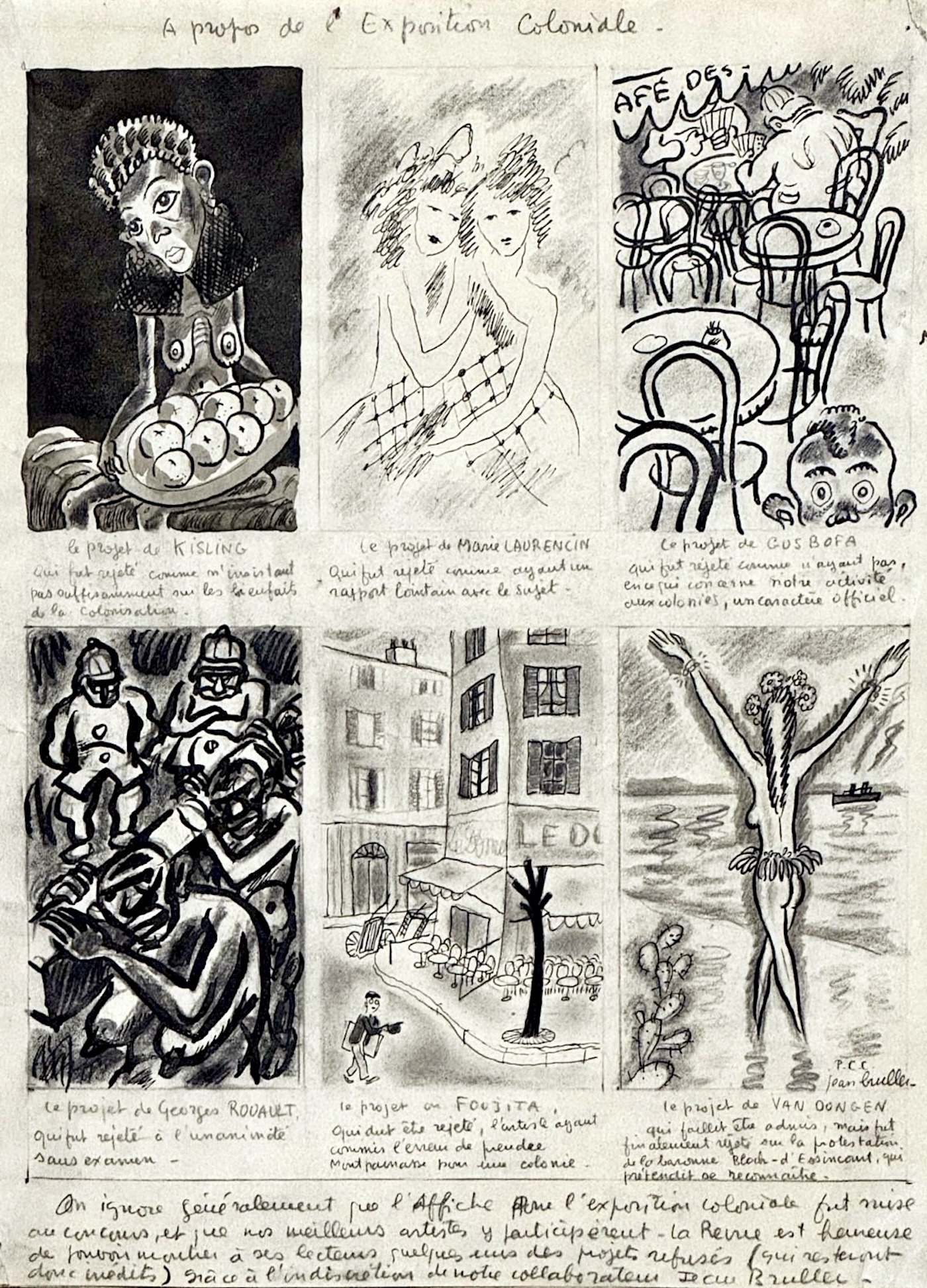Jean Bruller dit Vercors (1902-1991)
Original drawings.
Ink and pencil on paper. 1930.
Plate in 28 x 21 cm format.
About the colonial exhibition.
_______________________________________
Factical poster projects for the colonial exhibition of 1930 in Paris, composed of a series of six anti -colonialist satirical drawings, gathered in a board and pastiche Van Dongen, Kisling, Foujita, Rouault, Laurencin and Bofa.
Great and denouncing Vercors studies borrowing the style of some of the most famous artists of his time to offer six post-poster projects for the colonial exhibition. The creaky legends insist on the unfairness of French colonization in Africa, according to Vercors.
The “Moïse Kisling” project highlights an emaciated and visibly hungry woman with a tray of oranges. The subtext condemns the exploitation of African land, going hand in hand with that of its population.
Laurencin's project is lighter and makes you smile, bringing a little sweetness to a work of uncompromising denunciation.
The Bofa project represents French people from Metropolis, wearing settlers' helmets, seated on the terrace of a bistro.
Georges Rouault's project is the hardest. The explicit violence of the colonized condition is shown as it is. Obviously these images are not those that we want to show in mainland France.
The humorous Foujita project, depicts the most famous Japanese artists in Montparnasse, carton with drawings under the arm, passing in front of the dome; Montparnasse is his colony!
Van Dongen's project punctuates this suite in the funniest way. A young woman seen from the back, wearing the banana belt of Joséphine Baker, would have made an ideal advertisement for the colonies.
Vercors: ITineraire of a free thinker, resistant and anti -colonialist
Jean Bruller, born February 26, 1902 in Paris, is a significant figure in French literature of the 20th century. Known by the pseudonym of Vercors, which he adopted during the Second World War, he is both a writer, illustrator, underground publisher and committed thinker. His work and his life are deeply marked by the great fights of his century: the fight against Nazism and an early and courageous position against colonialism.
Before becoming a writer, Jean Bruller first became known as a satirical designer. He collaborates in particular with the Crapouillot , the Gazette des Lettres and the illustration . His sharp line and his humor attract the attention of intellectuals, including Pierre de Lescure, writer and critic, with whom he weaves a lasting friendship. It was with Lescure that he founded in 1941, in the midst of a German occupation, the editions of Minuit, the clandestine house of the French literary resistance. They publish together, anonymously, the silence of the sea (1942), a new poignant which will become a symbol of intellectual resistance.
An anti-colonialist voice from the interwar period: Bruller is one of the rare intellectuals of his generation to have opposed colonization openly in the 1930s, in little diffused but lucid texts. He denounces the abuses of French imperialism and the contempt of colonized peoples. This posture, against the tide of the dominant discourse, is part of a deeply universalist thought: "Colonialism is not the light carried to the peoples, it is the projected shadow of our interests. ( Jean Bruller, letter to André Gide, 1938)

